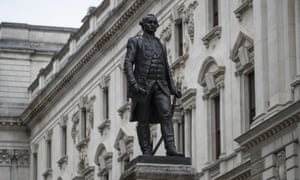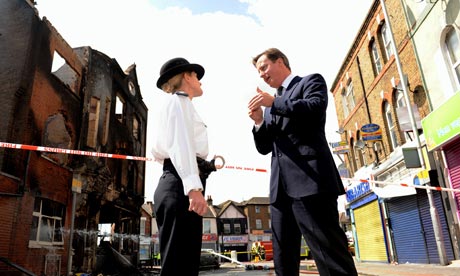Beware of the Government Lokpal Bill
My dear friend,
I reviewed the Government.s Lokpal bill in great detail. I am deeply concerned and not to mention alarmed with what I learned from it. Government has completely ignored the wishes of the common man and made a mockery of our hard fought struggle for strong anti-corruption laws. I have summarized the most troubling aspects of the government version here and suggested possible steps that everyone of you can take to help in this movement.
We had been demanding that an institution called Lokpal should be set up for central government and a Lokayukta should be set up for each state government through the same Bill. Lokpal would receive and investigate corruption complaints against central government employees and politicians. Lokayukta would do that job in respective states. However, the Cabinet has rejected our demand. Only a few senior-most officers in central government have been brought within the jurisdiction of Lokpal. All officials and politicians in state governments have been left out.
What does that mean?
- It means that rampant corruption in Panchayat works would continue as it is. Through the use of RTI Act, many people across the country have revealed how payments are routinely made for ghost works. Check dams exist only on paper. List of beneficiaries of various government schemes contain bogus names. Wages of poorest people are denied and siphoned off under NREGA. Social audits in several states have exposed corruption running into thousands of crores in NREGA. Medicines are routinely diverted to black market from government hospitals. Teachers do not turn up in government schools. They pay a part of their salaries to Basic Shiksha Adhikari to mark their attendance. 80% of Rs 30,000 crores of ration subsidy is siphoned off. People living below poverty line are turned away by ration shopkeepers because their rations are diverted to black market. Much of this money reaches the party coffers or the senior-most politicians. All this will continue even after the enactment of government.s Lokpal Bill because all of this is outside its jurisdiction.
- In cities, roads would continue to break after a few months of being constructed. Flyovers would continue to collapse. Streetlights will still not light up. Parks would continue to remain dilapidated. The builders would continue to fleece ordinary consumers. You would still need to pay bribes to get your passport or income tax refund. Building plan will not be passed without a bribe. Government.s Lokpal Bill does not cover any of this.
- Adarsh Housing scam is not covered under Government.s Lokpal. Reddy brothers will continue to loot our mines and minerals. Commonwealth Games, Fodder scam, Taj Corridor Scam, Yamuna Expressway scam, Jharkhand Mukti Morcha scam, Cash for vote scam . none of these scams are covered under Government.s Lokpal Bill.
- Members of Parliament and MLAs would continue to take bribes to ask questions or vote in Parliament and legislative assemblies because Lokpal would not have the powers to investigate them.
- Prime Minister, Chief Ministers, MPs, MLAs, municipal councilors, sarpanches, judges, all state government employees, all Group B, Group C and group D employees of the central government . all are out of the jurisdiction of Government.s Lokpal Bill.
- Interestingly, if any citizen makes a complaint of corruption against any official to Lokpal and if it lacks adequate evidence, then as per government.s bill, the citizen would face two years of minimum imprisonment. And the government would provide a free advocate to the corrupt official to file a case against the citizen. But if the citizen is able to prove that the official has indeed indulged in corruption, there is just six months of minimum imprisonment. Therefore, rather than the corrupt and corruption, the government bill is targeted against those who dare raise their voice against corruption. In short, it discourages people from reporting acts of corruption!
- 13 people, who had dared to raise their voice against corruption, were murdered in the last one year. We had demanded that Lokpal should have the powers and duty to provide protection to such people. Government Bill does not have any such provision.
- Government has retained its control over CBI. So, CBI would continue to avoid taking action against a future Raja until Supreme Court admonished them. Accounts of Quattrochis would continue to be defrozen in secrecy against national interests. CBI would continue to be used to arm twist Mayawatis, Laloo Yadavs, Jayalalithas and Mulayam Singhs into submission. Corruption money would continue to be siphoned off to Swiss accounts.
- Government.s Lokpal Bill is also unconstitutional. Prime Minister does not enjoy any immunity from investigations under the constitution. Exclusion of Prime Minister from Lokpal Bill is unconstitutional.
- Selection and removal of Lokpal members will be completely in the control of the government. Out of 9 member selection committee, five will be from ruling establishment, thus effectively giving powers in the hands of the government to appoint the most corrupt, pliable and politically loyal people as Lokpal members.
- High Courts and Supreme Court would continue to take more than 20 years to dispose appeals in corruption cases because our plea to set up special benches to hear such appeals has also been turned down.
Government says that there are 1.25 crore government employees in the country. Government refuses to bring them under Lokpal Bill because it would need large number of anti-corruption staff to keep a check on them. Isn.t that an absurd excuse? India is a huge country. Obviously, it has large number of employees. Can the government leave them unchecked and allow them to loot the people and the country? Under law, corruption is a crime . as heinous as murder or rape. If tomorrow, the incidence of murders or rapes increases as much as we have corruption now, would the government turn around and say that this country has 120 crore population and since they would need large number of policemen to check crime, they would not do it?
The country seems to be in the clutches of highly corrupt people. It has been reported that in the Cabinet Meeting, the Prime Minister, including some of his other Cabinet colleagues, kept pleading that PM be included within the Lokpal Bill. However, the corrupt within the Cabinet had the last say. The Prime Minister was rendered helpless, though one wonders the reasons for his helplessness.
What are our options? Some people feel that Anna is unreasonable. They say that an indefinite fast is a brahmastra and should be used as a last resort. Haven.t we already reached the end of the road?
Friends, I must confess that the road ahead is extremely challenging. Government is on a path to try and crush the movement at any cost. We need the active participation of every single Indian in order to fight back. If the Government.s bill becomes law we are literally gifting our country to the corrupt people to further plunder our resources.
Like I have said before its now or never.
Let every citizen in this country take one week.s off from his normal work from 16th August, the day Anna starts his indefinite fast, and take to the streets . in front of his house or at the crossings or in parks . with a tricolor in his hands shouting slogans against corruption. Let students take off from their schools and colleges. Let everyone take to streets. If this happens, we will achieve our goal within a week. Government can crush one Anna but it cannot crush 120 crore Annas. Government can impose section 144 on one jantar mantar. But it cannot impose a curfew on the whole country.
Can we count on you support to participate in one final attempt to save our country from the corrupt?
Arvind Kejriwal



